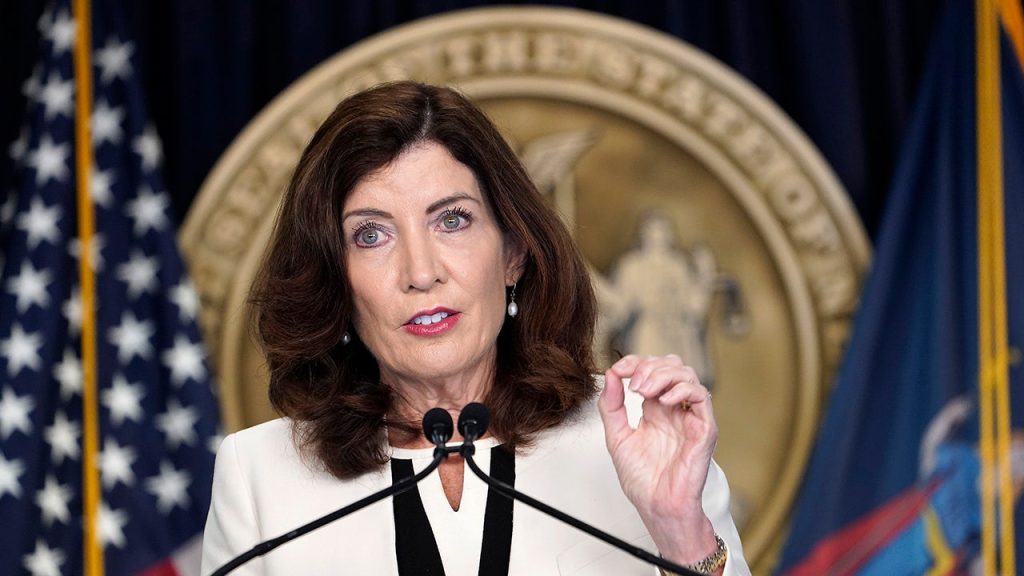New York Governor Kathy Hochul’s proposed “inflation refunds,” intended to provide financial relief to middle-class families struggling with rising costs, have drawn sharp criticism from economists and financial experts. The plan, which would distribute $3 billion in direct payments to roughly half of the state’s residents, has been labeled a politically motivated maneuver rather than a sound economic policy. Critics argue that the refunds, while seemingly beneficial in the short term, fail to address the root causes of inflation and may even exacerbate the problem.
Central to the criticism is the argument that the refunds are a form of wealth redistribution designed to garner political favor. Detractors contend that if the state has surplus revenue from sales tax, the more effective approach would be to reduce the sales tax itself, providing broader and more sustainable relief for all residents. This approach, they suggest, would stimulate economic activity and benefit a wider range of individuals and businesses, rather than targeting a specific demographic.
Furthermore, critics point to the potential inflationary impact of the refunds. Injecting more money into the economy, they argue, could further fuel inflation, negating any intended benefits. The increased demand without a corresponding increase in supply can drive prices higher, leaving consumers in a similar or worse financial position despite the refunds. This mirrors concerns raised by economists about federal stimulus programs during the pandemic, which were seen by some as contributing to the current inflationary pressures.
The timing and nature of the refunds also draw comparisons to previous government handouts, such as the COVID-era stimulus checks. While those checks were intended to provide a lifeline during economic shutdowns, the current refunds are being distributed during a period of economic recovery, albeit one marked by inflation. Critics question the necessity of these payments, suggesting that reducing taxes would be a more effective and sustainable way to alleviate the financial burden on New Yorkers.
Opponents of the refunds also highlight the potential for such initiatives to create a cycle of dependency on government assistance. By offering temporary relief through direct payments, the government may inadvertently discourage individuals from seeking long-term solutions to financial challenges. Moreover, the need to fund these ongoing payments could lead to future tax increases, further burdening taxpayers and potentially stifling economic growth.
The debate surrounding Governor Hochul’s inflation refunds underscores the complex and often contentious nature of economic policy. While the intention to provide relief to struggling families is laudable, critics argue that the chosen method is flawed and potentially counterproductive. They advocate for a more comprehensive approach to addressing inflation that focuses on reducing taxes, stimulating economic growth, and fostering long-term financial stability. The contrasting viewpoints highlight the need for careful consideration of the potential consequences of economic policies and the importance of seeking sustainable solutions to economic challenges.

